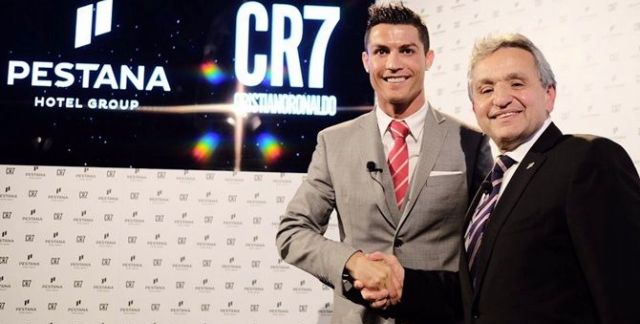An international research seminar on the theme of “territorial autonomy: the promotion of foreign direct investment”, held in New York Monday provided a platform to compare the Morocco-proposed Autonomy Initiative for the Sahara region with other autonomy experiences in the world, particularly with regard to the promotion of foreign direct investments in the autonomous regions and enhancement of economic development of local populations.
The seminar, organized by Morocco’s Permanent Mission to the UN in New York, drew eminent experts, researchers and academics from Switzerland, Portugal, Spain, Denmark, Indonesia and Tanzania. It was attended by around fifty diplomats, including several ambassadors in New York, senior UN officials and media accredited to the United Nations.
International experts shared experiences from the Islands of Madeira, Aceh, Zanzibar, Faroe Islands and the Crown Dependencies.
Participants first recalled that the Autonomy initiative was presented by Morocco to the Secretary General of the UN, in a bid to overcome the impasse in the negotiations on the regional dispute over the Sahara, that the UN Security Council, in successive resolutions, deemed the Moroccan plan as “serious and credible,” and that so many countries have applauded Morocco’s evident will to resolve the regional dispute and to offer the opportunity to improve its autonomy proposal during the negotiations.
Participants drew comparisons with other models of autonomy around the world, and came to the conclusion that the plan proposed by Morocco is the best solution for the Sahara, especially since it stands out for its generous provisions, compared to several cases, particularly in Europe. The Moroccan Autonomy initiative offers more power and prerogatives to local authorities and to the local population, they outlined.
They delved on the provisions of the Moroccan Autonomy initiative which guarantee the socio-economic development of the Sahara region, in particular its article 13 which stipulates that the region will have the financial resources necessary for its development and will benefit from funds allocated by the State in line with the principle of national solidarity.
They underlined in this connection Morocco’s mobilization efforts to attract more FDI in the region, which is experiencing unprecedented dynamism thanks to the New Development Model for the Sahara launched by King Mohammed VI in 2015, and to Morocco’s considerable efforts in terms of investments and business, as well as in the areas of industrialization, tourism, fishing, sports and other areas, in addition to efforts to establish itself as the gateway to Africa, thanks to the intelligent use it makes of its strategic geographical position, located between Europe and sub-Saharan Africa, its governance and its political stability.
According to the United Nations Conference on Trade and Development, they recalled, Morocco is the 9th country that attracted the most foreign direct investment in Africa, in 2021. Besides, Morocco has done so much effort that it rose to 53rd place globally in the ‘Easy of Doing Business’ ranking in 2020, scoring a “spectacular progress.”
During the debates, participants also stressed the growing number of States which recognize Morocco’s sovereignty over the Sahara, including the USA, and which support the Autonomy initiative as the only solution to the regional dispute, and recalled that about thirty Arab, African, Asian and American countries as well as several regional organizations decided to open diplomatic representations in the cities of Laâyoune and Dakhla.
In this connection, one of the participants Dr. Rui Carita, professor at the University of Madeira (Portugal), who made an analytical comparison between the autonomy status of Madeira and the Moroccan Autonomy initiative, pointed out that “the growing international recognition of Moroccan sovereignty over the Sahara and the opening of several consulates in Dakhla and Laâyoune demonstrate an urgency to define the status of the new autonomous region.” “The analysis of the history of the autonomous European Atlantic regions of the Azores, Madeira and the Canary Islands, and the coasts of North Africa, allows us to conclude that the future of the issue of the Sahara will involve the establishment of an autonomous region of Morocco,” he said.
Morocco’s ambassador to the United Nations, Omar Hilale, indicated that this seminar, which is in its 13th year, testifies to Morocco’s political will and seriousness to find a political solution to the bilateral dispute with Algeria on the basis of expanded autonomy.
He noted that the models of autonomy presented at this conference prove the effectiveness of this governance mechanism, particularly in terms of promoting investment, prosperity, living together, reconciliation and power sharing.
Hilale also noted that the Security Council qualifies the Moroccan initiative as serious and credible because it presents several mechanisms and paradigms that can resolve political and regional problems, reduce tensions with neighbors and contribute to peace and security throughout the region.
This is why more than 110 countries express their support for the Moroccan autonomy plan as “the solution” to the Sahara regional dispute, while recognizing that decolonization was completed once and for all by the return of the provinces from the South to the Motherland, Morocco, underlined the diplomat.
The ambassador also cited the support of more than 18 European countries for the Moroccan initiative, 15 of which are members of the European Union, which proves the credibility and seriousness of the Moroccan Autonomy initiative and thus enhanced the Moroccan Sahara’s standing as an economic engine and a privileged hub in West Africa and the transatlantic space.
Besides Dr. Rui Carita, other participants included Marc Finaud, Senior Advisor at the Geneva Security Policy Center, Dr Mawardi Ismail, professor of law at the University of Syiah Kuala (Indonesia), Dr. Johnny í Grótinum, professor at the University of the Faroe Islands (Denmark), and Dr. Yahya Khamis Hamad, dean of the Faculty of Law and Sharia at the University of Zanzibar (Tanzania).



